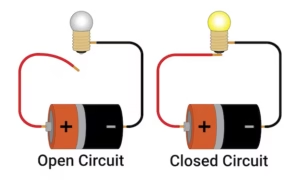Gen Z brings something new into the workforce – a rather unique set of values, goals, and expectations that don’t often align with the old workplace standards. Even though this brings fresh perspectives and a more digital-first way of working, they also face difficulties and misunderstanding in most workplaces, where some companies find challenging to retain them. Let’s explore five surprising factors why companies are letting go of Gen Z employees.
1. Diverging Expectations around Work Culture
Work Culture from the Old School vs. Gen Z Mindset
When Gen Z entered the work force, they did so with a far more alternative mindset on work-life balance based in part on the internet and social media. Many of them may be looking for a more casual, informal environment, are not necessarily prepared for the more formal structures of some organizations. They value personal time and mental well-being, sometimes leading to friction with older generations who prioritize “putting in the hours” and showing physical presence in the office.
Flexible Hours and Remote Work Preferences
Gen Z’s preference for remote work and flexible hours can create misunderstandings with employers. Many in this generation feel more productive at home or working flexible hours that align with their natural rhythms, but some companies are committed to in-office, 9-to-5 structures. This clash can lead to dissatisfaction and ultimately, terminations when employees fail to meet rigid attendance requirements.
2. High Job Turnover Rates
High Job Turnover Rates
For Gen Z, switching jobs every few years (or even more often) is normal. They seek new experiences and want to avoid “getting stuck” in a role that doesn’t feel like a good fit. While past generations often viewed long-term tenure as a career strength, Gen Z sees job-hopping as a path to personal growth and learning.
Effects of High Turnover on Businesses
High turnover creates costly disruptions for companies, which invest significant time and money into training new employees. When Gen Z employees leave soon after being hired, businesses struggle to maintain consistency and may decide to hire individuals more likely to stay long-term, ultimately leading to higher turnover rates and more frequent terminations.
3. A Focus on Purpose Over Profit
How Gen Z Assesses Aligned Personal Values
: This generation is very particular about vales and most often look for opportunities that reflect their standing on contentious issues such as the environment, equality, or business conduct. While this drive is admittedly a positive one in every other ways, sometimes it can be an issue if the employee’s values differ from the company’s mission, making relations between the two sides tense and the employee unhappy.
Challenges with Corporate Structures
Gen Z employees often challenge traditional corporate values and hierarchical structures if they don’t see an alignment with their personal ethics. This generation wants transparency, equity, and purpose-driven work, and if these qualities are lacking, it may lead to disengagement, with some companies choosing to part ways as a result.
4. Demand for Accelerated Career Growth
Expectations of Fast-Track Advancement
Gen Z wants to see rapid career progression and sometimes expects promotions or salary increases faster than is realistic. While ambition is great, the expectation of accelerated advancement can clash with company standards. Well, most companies have developmental career ladders for growth, and these require time, experience, and demonstrated ability.
Reality of Climbing the Corporate Ladder
Advancement is slow in traditional work environments and may consume several years. Gen Z’s impatience with the slow climb can lead to frustration, as they feel stagnant or undervalued if they aren’t quickly promoted. Companies may see this as a misalignment with their values and decide to let these employees go if the expectations cannot be managed.
5. Resistance to Traditional Hierarchies
Preferring Flat Structures and Open Communication
Gen Z appreciates workplaces with flatter structures and more open communication channels. They often seek environments where ideas are freely shared without needing to navigate complex hierarchies. In more rigid corporate structures, where authority and hierarchy are emphasized, this desire for openness can come off as insubordination or a lack of respect for established protocols.
Struggles with Authority and Structure
This generation prefers mentorship over traditional authority. When faced with managers who take a “top-down” approach, they may struggle to adapt or feel misunderstood. For companies that rely on hierarchical structures, this preference can be problematic, sometimes leading to termination if a Gen Z employee is perceived as non-cooperative.



















